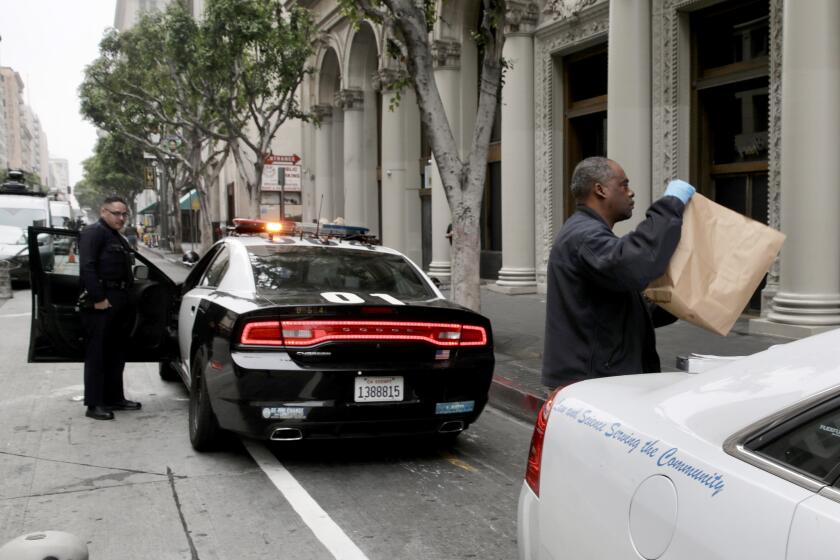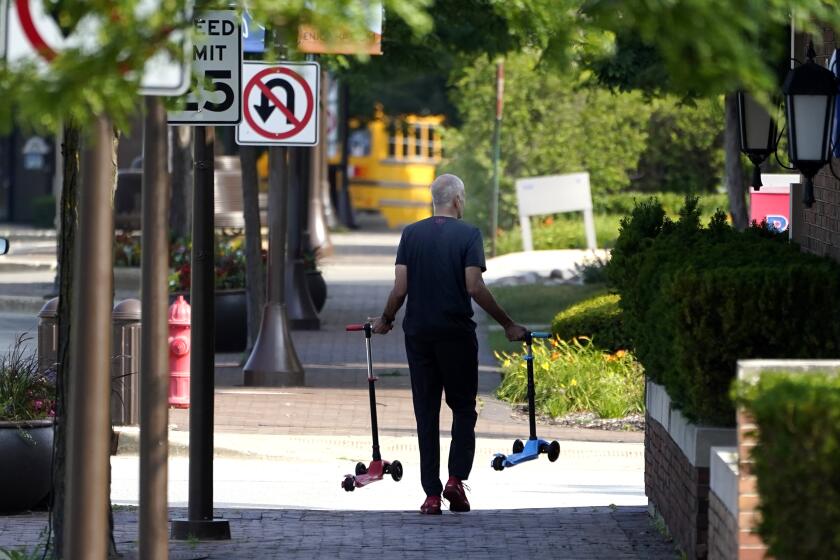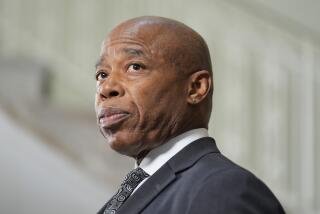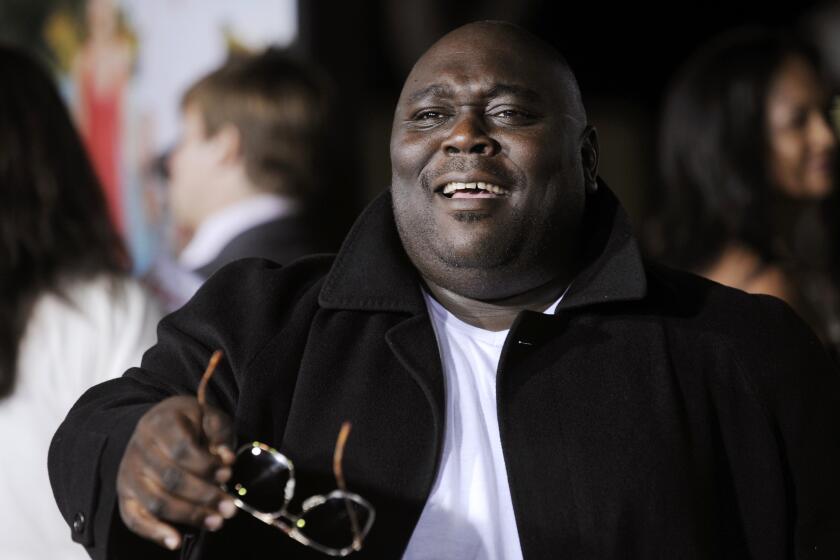‘Dilbert’ cartoonist Scott Adams has a bleak take on our ‘dangerous young man problem’
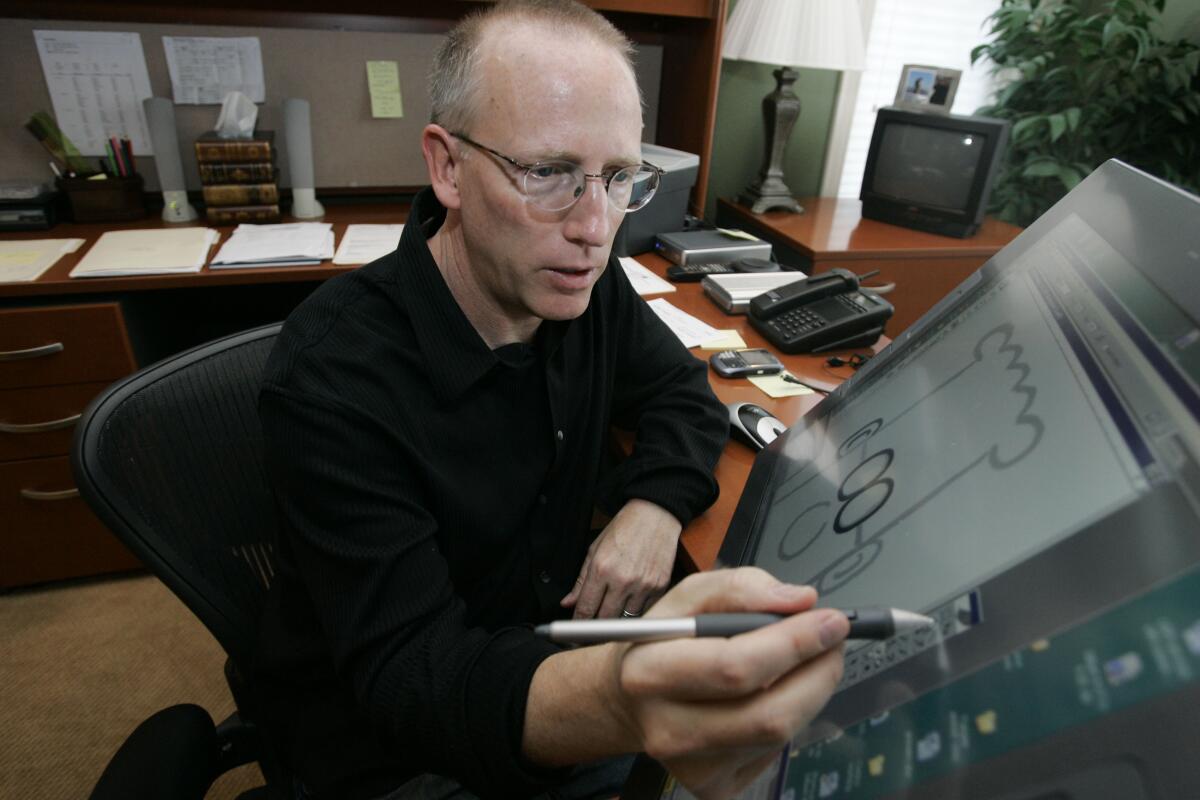
- Share via
After the recent mass shooting in Highland Park, Ill., cartoonist Scott Adams is speaking out about what he calls the country’s “dangerous young man problem.” And his conclusions — by his own admission — aren’t easy to read.
The “Dilbert” creator also brought the fentanyl overdose epidemic into the mix, less than four years after his own stepson fatally overdosed on that drug.
“The Highland shooting and every Fentanyl overdose death among the young are teaching us the same lesson, and we refuse to learn it. It’s difficult, but I’m qualified to give you this lesson (unfortunately). This won’t be easy to read,” Adams wrote Wednesday morning, kicking off a long series of tweets inspired in part by the Fourth of July parade shooting that left seven people dead and more than three dozen wounded.
The 21-year-old suspected shooter allegedly sprayed dozens of rounds of gunfire into the holiday crowd, dressed as a woman to help in his escape and contemplated a second shooting before he was arrested. He is now being held without bail pending arraignment.
The suspect in the deadly shooting at a Fourth of July parade in Highland Park, Ill., says he fled to Wisconsin and considered a shooting there, police say.
“When a young male (let’s say 14 to 19) is a danger to himself and others, society gives the supporting family two options,” he continued. “1. Watch people die. 2. Kill your own son. Those are your only options. I chose #1 and watched my stepson die. I was relieved he took no one else with him.”
He dismissed as “delusional” anyone who thinks that there is another way, involving tough love and government assistance, that “fixes” such a person. Adams rejected the notion that “services and ways to deal with such a teen” exist.
“If one more person hallucinates to me about some ‘program’ where teens are kidnapped and ‘fixed’ and returned to their happy parents, I might explode. No such thing exists. You have two options. Only two. No help is coming. Only death and suffering.”
Adams’ emotions appeared to be fueled by his own experience with a stepson whose personality changed after he was involved in a serious bicycle accident when he was 14. And yes, he was wearing a helmet, Adams said in a 2018 Periscope video.
But the injury the teen sustained caused him to lose his fear and his impulse control, the 65-year-old said. Then he became addicted to drugs and nothing else mattered.
Parents whose children died of fentanyl-laced pills are demanding stricter penalties and are lobbying Silicon Valley for social media protections.
In that video, Adams blamed California laws for his inability to commit his stepson to a place where he couldn’t get the drugs that were harming him.
“I got to watch my dead, blue, bloated son taken out on a stretcher in front of his mother and biological father,” he said.
Back on Twitter, Adams wrote Wednesday, “If I were to invent a solution to the dangerous young man problem, I think it would involve putting them all in one place so they could only hurt each other, not necessarily in jail, just away from society. Once they are separated from society (and drugs) maybe help is possible.”
And he acknowledged that while seeming dangerous wasn’t enough to take away someone’s bodily autonomy, society has, in his opinion, reached a place where it has to be considered.
“Otherwise parents have two options,” Adams wrote. “And you get more of what we are getting.”
Police say the gunman in suburban Chicago fired more than 70 rounds with an AR-15-style gun, then evaded capture with a disguise. Death toll rises to seven.
He doubled down on his Twitter thread in his podcast, “Real Coffee With Scott Adams,” also on Wednesday.
“We don’t have any systems in place that can deal with ... a dangerous young male who hasn’t yet broken a law. That’s the important part. ... There’s nothing you can do,” Adams said.
He said he tried to deliver some “tough reality” in his Twitter thread, then talked extensively about all the things that are impossible to do when dealing with your own troubled child, even if you have the resources he does. “There isn’t a f— thing you can do about it.”
People reacting to Adams’ thread were pretty much appalled.
“Scott, I am very confused. Is this some sort of performance art? Surely you aren’t actually advocating for the execution of troubled young men,” one Twitter user wrote.
“As a therapeutic parenting specialist and an adoptive parent of previously traumatized kids, I can tell you that you are DEFINITELY wrong. Kids CAN recover,” said another, whose bio says she’s a nurse.
Scott Adams doesn’t just lampoon consultants in his Dilbert cartoon strip, he can also pose as one and make managers believe him.
“This shows a complete & total lack of understanding of mental health and rehabilitation,” a third person wrote. “The entire field of psychiatric professionals would like to have a word with you. I really hope nobody reads this, trusting you as a source and kills their child believing there is no hope.”
And then there was user @Leighbra, who tweeted, “I know you carry intense pain & guilt over your son’s death, but millions of people in America struggled with addiction & live happy, healthy lives in sobriety. Millions suffer from addiction & don’t ever hurt another soul. I wish you the healing you need to stop hurting others.”
But another user could relate to Adams’ experience.
“I faced this situation with a foster son. Nothing we tried helped him,” @HenryVogel9 tweeted. “When he became a danger to my family, especially my autism spectrum son, I had to let him go. He took his own life a few years later. Though I can’t imagine what else I could have done, I still feel guilty.”
“Henry, I’m here for you,” the cartoonist wrote. “There is nothing you could have done.”
More to Read
The biggest entertainment stories
Get our big stories about Hollywood, film, television, music, arts, culture and more right in your inbox as soon as they publish.
You may occasionally receive promotional content from the Los Angeles Times.

